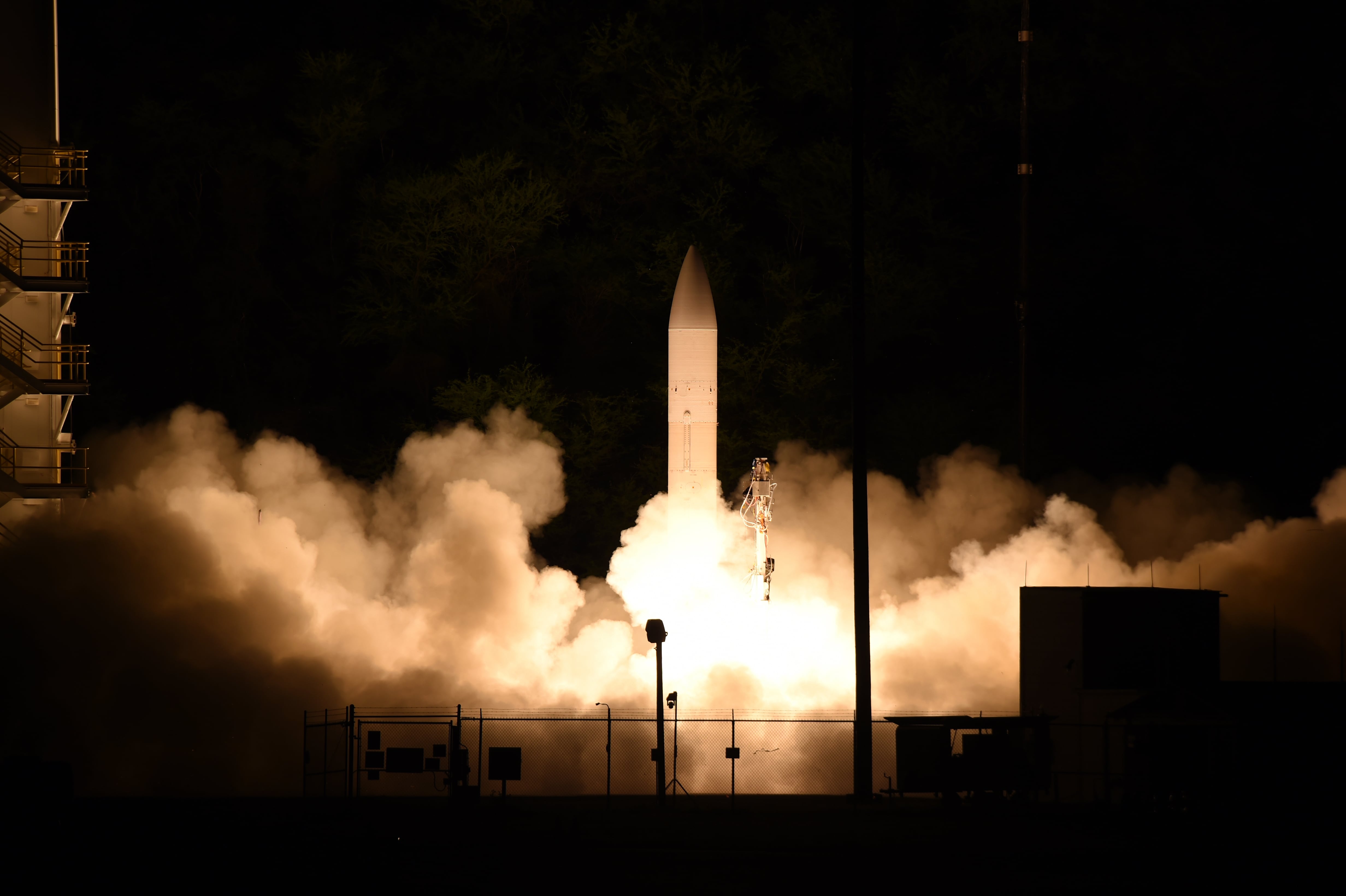WASHINGTON ― New recommendations released Tuesday to boost defense industrial base competition make clear the Pentagon is concerned about industry consolidation, particularly around hypersonic weapons.
The report from DoD’s acquisition and sustainment office, which says broadly that consolidation poses a national security risk, marks the strongest U.S. government pressure against merger and acquisition activity since the defense secretary in 2015 discouraged deals among the largest prime contractors.
The report was published just days after Lockheed Martin cancelled its $4.4 billion purchase of Aerojet Rocketdyne amid opposition from the U.S. Federal Trade Commission, which argued the deal would have let Lockheed cut off other contractors from vital components Aerojet provides, including scramjet engines for hypersonic missiles and control systems for missile interceptors.
Along similar lines, the Pentagon report warns of large hypersonic weapons vendors acquiring their suppliers, in the vein of Lockheed’s 2020 purchase of the company i3′s hypersonics business. It argues the trend could eventually lead to sole-source contracting.
“Within this sector, many primes, first-tier subcontractors, and first-tier material suppliers are positioning themselves to acquire lower-tiered hypersonic contractors and material suppliers,” the report reads. “This vertical integration will likely lead to reduced competition and may eliminate it altogether.”
The small suppliers of feeder technologies for hypersonic weapons need to be protected now, as demand is growing, the report contends.
“Acquisition of these specialized hypersonic niche contractors (especially at this early stage of hypersonic technology and hypersonic missile development) will effectively prevent any other company from entering the market, thereby leading to reduced or limited competition, and capacity issues in the future,” the report argues. “When competition is no longer a variable for a company the only other acquisition approach may be sole-source contracting.”
With the U.S. locked in a race with Russia and China to develop hypersonic weapons, the report is just the latest signal of concern from the Pentagon. Defense Secretary Lloyd Austin and Deputy Secretary of Defense Kathleen Hicks earlier this month convened a meeting of more than a dozen defense executives to gather feedback on speeding up hypersonic weapons development.
The overall report, titled the “State of Competition within the Defense Industrial Base,” stems from President Joe Biden’s July 9 executive order aimed at increasing competition and raising wages, which in turn called on the Pentagon to recommend ways to improve its pool of suppliers.
Beyond avoiding consolidation, the Pentagon recommends steps to ensure resilience in the supply chain for five priority sectors: casting and forgings, missiles and munitions, energy storage and batteries, strategic and critical materials, and microelectronics. It also highlights DoD’s efforts to gain access to intellectual property from suppliers as a way to boost competition.
Though the Pentagon hasn’t made public its concerns about the now-cancelled Lockheed-Aerojet deal, the new report details worries about increased vertical mergers in the aerospace and defense sector. They “can raise concerns when the vertically integrated firm has the ability and incentive to take anticompetitive actions that provide it an advantage over competitors,” the report reads.
The report notes the number of prime defense contractors has shrunk from 51 to 5 since the 1990s.
The Pentagon is promoting competition to the maximum extent possible because, the report says, “a single source or a small number of sources for a defense need can pose mission risk and, particularly in cases where the existing dominant supplier or suppliers are influenced by an adversary nation, pose significant national security risks.”
The report acknowledged there’s no strong correlation between consolidation and increased pricing that’s evident, but argued “concentration can reduce the availability of key supplies and equipment, diminish vendors’ incentives for innovation and performance in government contracts, and lead to supply chain vulnerabilities.”
The Pentagon should focus on creating new pathways for non-traditional suppliers if defense officials want to boost competition, said Byron Callan, a policy research expert at Capital Alpha Partners. An example is Tesla founder Elon Musk’s push into the launch market, once dominated by Boeing and Lockheed, with Space X.
“Once the DoD starts creating these lanes, and you see a couple of new entrants, it’ll shake the market up, it’s going to shake up the behavior of the large contractors,” Callan said. “Tesla barges in, breaks down the doors and it’s like, wow, you’re getting lower costs, more frequent service, a lot of innovation. It’s those kinds of examples that maybe they ought to be thinking about.”
Joe Gould was the senior Pentagon reporter for Defense News, covering the intersection of national security policy, politics and the defense industry. He had previously served as Congress reporter.




